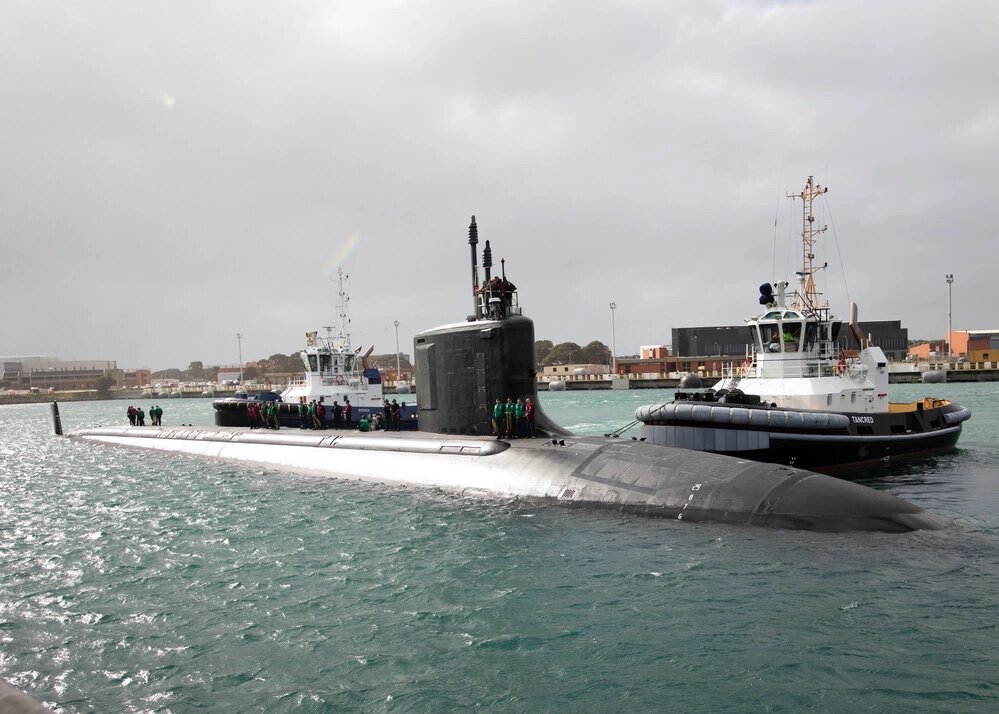A number of countries are closing their borders to South Africa over fears a new mutant Covid-19 variant will spread. Where does Australia stand?
The United States announced Friday it is restricting travel from eight southern African countries over fears of the new variant, which some had expected to be named Nu but which has now been dubbed Omicron.
Travel will be mostly banned starting Monday from South Africa, Botswana, Zimbabwe, Namibia, Lesotho, Eswatini, Mozambique and Malawi, a senior official in President Joe Biden’s administration said.
Only US citizens and permanent residents will still be able to travel from the eight countries, the official, who spoke on condition of anonymity.
“President Biden has promised to take every measure necessary to keep Americans safe and defeat the pandemic, and this was a step recommended by US government medical experts and the Covid-19 Response Team,” the official said.
Canada also banned travellers from seven African countries — Botswana, Eswatini, Lesotho, Mozambique, Namibia, South Africa and Zimbabwe — over concerns about the variant.
The move comes as the World Health Organisation declared the strain B.1.1.529 as a “variant of concern” and named it “Omicron”.
It followed travel bans from a number of European nations and Britain as governments scramble to prevent the spread of the new variant in a region that is already struggling to keep cases under control ahead of Christmas.
The heavily-mutated new variant has so far been detected in South Africa, Botswana and Hong Kong. At the time of publishing its first case had just been announced in Europe.
In a statement obtained by news.com.au, South Africa’s National Institute for Communicable Diseases revealed there are 22 positive cases linked to the strain, adding the percentage testing positive was “increasing quickly”.
“Although the data are limited, our experts are working overtime with all the established surveillance systems to understand the new variant and what the potential implications could be,” Prof Adrian Puren, NICD Acting Executive Director said.
“Developments are occurring at a rapid pace and the public has our assurance that we will keep them up to date.”
Overnight a slew of countries followed Britain in announcing travel bans including France, Italy and Singapore. Austria, the Czech Republic, Germany, Italy and the Netherlands.
The bans all included South Africa, and in many cases also some or all of the following: Botswana, Eswatini (Swaziland), Lesotho, Namibia, Zambia and Zimbabwe.
But the World Health Organisation cautioned against imposing travel restrictions, saying it would take weeks to understand the implications of the newly discovered strain.
In a sign of the growing alarm, the European Union said it would swiftly coordinate joint action among the bloc’s 27-member states.
The EU’s executive “will propose, in close co-ordination with member states, to activate the emergency brake to stop air travel from the southern African region due to the variant of concern B.1.1.529,” EU chief Ursula Von der Leyen tweeted Friday.
It comes as Australian health officials on Friday said there were currently no plans in place to ban people flying in from the African region, but Health Minister Greg Hunt assured: “If the medical advice is that we need to change, we won’t hesitate.”
At this stage, fully vaccinated Australians are still allowed to fly home without having to quarantine.
Mr Hunt said Australia’s Chief Medical Officer Professor Paul Kelly and head of the Scientific and Technical Advisory Group, Professor Brendan Murphy, were continuing to monitor the situation but have cleared the way to keep the border open.
“No change at this stage,” Mr Hunt said.
“If more action is needed, more will be implemented. That’s what we’ve done as a country, whether it’s been closing borders, whether it’s been ensuring that there’s quarantine.”
Prime Minister Scott Morrison said he was “advised” the situation is under investigation but “not as a variant of concern”.
“But that can change,” Mr Morrison said.
“And we monitor all of these variants and we note the responses that are made by other countries and we consider those in real time.”
Travel bans overseas grow
Germany’s new travel restrictions, starting Friday night, will affect South Africa and “probably neighbouring nations”, Acting Health Minister Jens Spahn said, with only German nationals allowed entry.
They must quarantine for 14 days upon arrival even if vaccinated.
“The last thing we need now is an introduced new variant that causes even more problems,” Spahn said, with Germany in the grip of a ferocious fourth wave of the pandemic.
In Rome, the government on Friday announced it was banning entry to those who have been in South Africa, Lesotho, Botswana, Zimbabwe, Mozambique, Namibia or Eswatini in the past fortnight.
Health Minister Roberto Speranza said scientists were studying the new B.1.1.529 variant, “and in the meantime, we will follow the path of maximum caution”.
Britain announced that all flights from South Africa and five other African nations would be prohibited starting on Friday.
The U.K. Health Secretary Sajid Javid said all flights from South Africa, Namibia, Zimbabwe, Botswana, Lesotho and Eswatini are being suspended and the countries added to the UK’s travel Red List.
South Africa sharply condemned Britain’s decision.
“Whilst South Africa respects the right of all countries to take the necessary precautionary measures to protect their citizens, the UK’s decision to temporarily ban South Africans from entering the UK seems to have been rushed as even the World Health Organisation is yet to advise on the next steps,” the foreign ministry said in a statement.



















Discussion about this post